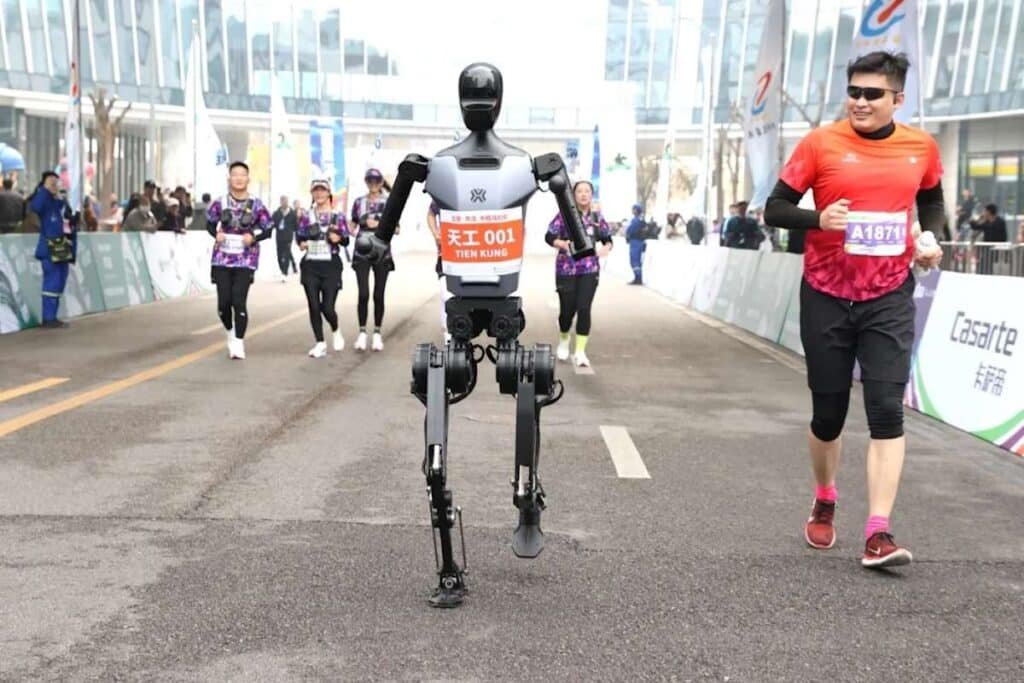Career development is a lifelong journey encompassing deliberate actions and strategies aimed at enhancing skills, gaining experiences, and achieving professional goals. It involves a proactive approach to learning, adapting, and progressing within one’s chosen field.
Understanding Career Development
Developing a career involves a series of intentional steps taken by individuals to shape their professional growth. It includes setting goals, acquiring new skills, seeking opportunities for advancement, and adapting to evolving industry demands.
Strategies for Career Development
- Goal Setting: Clearly defining short-term and long-term career objectives provides direction and purpose, guiding individuals toward their desired professional milestones.
- Continuous Learning: Embracing a growth mindset involves pursuing continuous learning opportunities, whether through formal education, workshops, certifications, or informal skill-building exercises.
- Networking and Relationship Building: Establishing connections within one’s industry fosters opportunities for mentorship, collaboration, and accessing hidden job markets.
- Embracing Challenges and Change: Embracing challenges and being open to change fosters adaptability, resilience, and the ability to thrive in dynamic work environments.
- Seeking Feedback and Self-Reflection: Soliciting feedback from mentors, peers, and supervisors aids in identifying areas for improvement, and fostering personal and professional growth.

Tools and Resources
- Professional Development Programs: Companies often offer training and development programs, workshops, and seminars to enhance employee skill sets and career progression.
- Online Learning Platforms: Accessible resources like online courses, webinars, and tutorials enable individuals to acquire new skills at their own pace and convenience.
- Career Counseling and Coaching: Seeking guidance from career counselors or coaches helps individuals clarify goals, identify strengths, and overcome obstacles in their career paths.
- Networking Events and Platforms: Participating in industry events, conferences, and online networking platforms broadens professional networks and exposes individuals to diverse opportunities.
- Mentorship Programs: Engaging with experienced professionals as mentors offer guidance, advice, and insights, accelerating career development through shared knowledge and experiences.
Importance of Soft Skills
Beyond technical expertise, soft skills like communication, adaptability, leadership, and emotional intelligence play a pivotal role in career development. Cultivating these skills enhances effectiveness and marketability in the workplace.
Career Development in a Changing Landscape
- Remote Work and Digital Skills: With the rise of remote work, acquiring digital skills and adapting to virtual collaboration tools is becoming increasingly important for career progression.
- Emphasis on Diversity, Equity, and Inclusion (DEI): Companies prioritizing DEI initiatives create opportunities for diverse career paths and experiences, fostering an inclusive environment for growth.
- Entrepreneurial Mindset: Cultivating an entrepreneurial mindset, regardless of industry, encourages innovation, problem-solving, and proactive approaches to career development.
Balancing Personal and Professional Development
Achieving a healthy work-life balance is integral to sustained career development. Prioritizing self-care, setting boundaries, and nurturing personal interests contribute to overall well-being and career success.
How to Plan?
- SWOT Analysis: Conducting a SWOT (Strengths, Weaknesses, Opportunities, Threats) analysis helps individuals assess their current position, identify areas for improvement, and leverage strengths to capitalize on opportunities.
- Long-Term Vision: Crafting a long-term vision involves envisioning where one wants to be in the future. This vision serves as a guiding beacon, influencing decisions and actions throughout one’s career.
- Building a Professional Brand: Establishing a strong professional brand involves cultivating a positive online presence, showcasing skills and accomplishments, and engaging in thought leadership within one’s industry.
Job Rotation and Skill Diversification
Job rotation within an organization or across industries exposes individuals to diverse roles and responsibilities. This not only broadens skill sets but also provides a holistic understanding of the business landscape.
Entrepreneurship and Side Projects

Exploring entrepreneurial ventures or engaging in side projects can contribute to skill development, innovation, and the cultivation of a proactive and entrepreneurial mindset. These experiences also demonstrate initiative and creativity to potential employers.
Global Perspective and Cross-Cultural Competence
In an increasingly interconnected world, developing a global perspective and cross-cultural competence is valuable. Understanding different business cultures and working with diverse teams enhances adaptability and broadens career opportunities.
Time Management and Productivity
Effective time management is crucial for career development. Prioritizing tasks, setting realistic goals, and adopting productivity tools contribute to efficiency and goal attainment.
Financial Literacy and Planning
Understanding financial concepts, budgeting, and long-term financial planning are integral aspects of career development. Financial literacy empowers individuals to make informed decisions about salary negotiations, investments, and retirement planning.
Industry Certifications and Specializations
Earning industry-specific certifications or pursuing specialized training programs enhances professional credibility and positions individuals as experts in their fields.
Continuous Career Exploration
Developing a career isn’t always linear. Exploring different career paths, industries, or roles provides valuable insights into personal preferences, strengths, and areas for improvement, allowing for more informed career decisions.
Intrapreneurship within Organizations
Intrapreneurship involves applying entrepreneurial principles within a corporate setting. Initiatives such as proposing new projects, process improvements, or innovative solutions showcase initiative and contribute to career advancement within an organization.
Emotional Intelligence and Leadership Skills
Developing emotional intelligence and leadership skills is crucial for career progression. Effective communication, empathy, and the ability to lead and inspire teams are qualities that set individuals apart in their professional journeys.
Resilience and Coping with Setbacks
Building resilience is an essential aspect of developing your career. The ability to navigate setbacks, learn from failures, and bounce back stronger contributes to long-term success.
Industry Involvement and Thought Leadership
Actively participating in industry associations, conferences, or forums positions individuals as thought leaders. Sharing insights, contributing to discussions, and staying abreast of industry trends demonstrate a commitment to professional growth.
Mentorship and Reverse Mentoring

Establishing mentorship relationships provides guidance and insights from experienced professionals. Additionally, embracing reverse mentoring, where younger professionals mentor more experienced individuals, fosters mutual learning and growth.
Corporate Social Responsibility and Community Engagement
Engaging in corporate social responsibility (CSR) initiatives or community service projects not only contributes to societal well-being but also enhances a company’s image and provides individuals with opportunities to develop leadership and project management skills.
Continuous Networking
Building and maintaining a robust professional network is an ongoing process. Networking facilitates the exchange of ideas, job opportunities, and industry insights, creating a supportive ecosystem for career development.
Work-Life Integration
The concept of work-life integration recognizes that personal and professional lives are interconnected. Striking a balance between work and personal commitments contributes to overall well-being and sustained career success.
Conclusion:
Career development is a multifaceted and dynamic journey that requires a strategic approach, adaptability, and a commitment to lifelong learning. By incorporating these additional aspects into the development process, individuals can navigate challenges, seize opportunities, and foster a fulfilling and prosperous professional journey. Embracing a holistic approach that considers personal growth, skill development, and industry trends contributes to sustained success in today’s rapidly evolving work environment.










